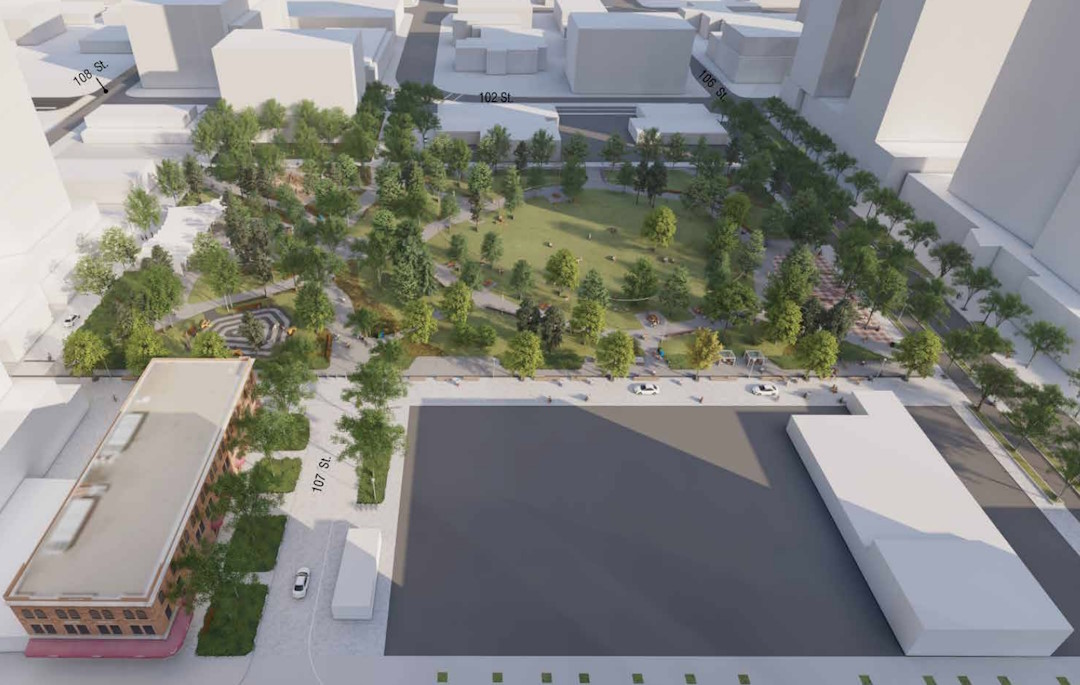This week, a public hearing will take place on May 30. Community and public services committee will meet on May 31, urban planning committee will meet on June 1, and executive committee will meet on June 2.
Here are some of the key items on the agenda:
- The latest update on the city's Indigenous Framework highlights the key accomplishments of 2022, including relationship-building and continued learning. This fall, the city will host an Indigenous Framework Annual Gathering to honour a commitment made "to bring Elders, Knowledge Keepers, senior leaders, staff, and community together to share and celebrate progress of the Framework's implementation."
- According to a survey conducted in March 2023, 80% of respondents agree that more should be done to address homelessness in Edmonton, and 73% agree the city should do more regardless of the responsibility of the other orders of government. Administration is now conducting a cost analysis of its efforts to respond to homelessness and will prepare a draft Corporate Homelessness Plan for council's review in the first quarter of 2024.
- Charter Bylaw 20503 and Bylaw 20502 will allow for the development of the Downtown Warehouse Campus Park by closing portions of 107 Street between 102 Avenue and Jasper Avenue, and by amending the Zoning Bylaw accordingly.

Engagement on the new Warehouse Park has been completed, and the final design for the park is now under development. Construction is to begin in the spring of 2024. (City of Edmonton)
Here are some of the other new agenda items:
- Of the $7.27 billion budgeted for the 2019-2022 capital budget, the city spent just 69% or $5.03 billion during the four-year period. The largest variance was $986.8 million less spent on the Valley Line LRT project than planned, mainly due to a delay arising from the decision to split procurement into two and delays from TransEd.
- The current lease on the Old Strathcona Farmers' Market expires on April 5, 2025, and administration is recommending that council approve a five-year extension to enable the society to seek grants and other funding for its planned revitalization of the facility. Repair costs for the building are estimated at $17.7 million for the next 20 years, with annual operating and maintenance costs of $170,000.
- Administration has identified three options to address catalytic converter theft: ask the provincial and federal governments for new regulations; support the Edmonton Police Service in exploring voluntary etching programs; or amend the Business Licence Bylaw to impose conditions on businesses that purchase, collect, receive, store, or process used catalytic converters. According to EPS, there was a 25% increase in reported thefts of catalytic converters from 2021 to 2022, and thefts last year cost Edmontonians an estimated $20 million. There's no mention of the $50,000 catalytic converter challenge the EPS hosted in partnership with the Edmonton Police Foundation last year.
- Administration has identified three options for the maintenance of neighbourhood entrance signs, which are currently the responsibility of property owners when located on private property and the city when located on public property. Aside from the status quo, options include the city taking responsibility and establishing a grant program for some or all of the maintenance, or creating a developer-contributed maintenance fund and requiring all future signs to be installed on public land.
- According to the annual update on Connections & Exchanges, the city's arts and heritage plan, 261 organizations received grants in 2022, with 276 individual artists and collectives funded. By the end of summer 2023, the Edmonton Arts Council will have distributed more than $1.2 million in COVID recovery funds.
- Administration plans to sell an RF5 property located at 1035 Webber Greens Drive NW that it acquired in 2004 as-is. The approach "would allow for the development of the roadway without the need for city funding but would result in tree loss." Should the property not sell, the city would keep it as open space (which would retain the trees).
- Bylaw 20112, which would designate the Magrath Mansion as a Municipal Historic Resource, is ready for three readings. The Magrath Mansion was designated a Provincial Historic Resource on Sept. 17, 1975.
Meetings are streamed live on YouTube on the Chamber channel and River Valley Room channel.
